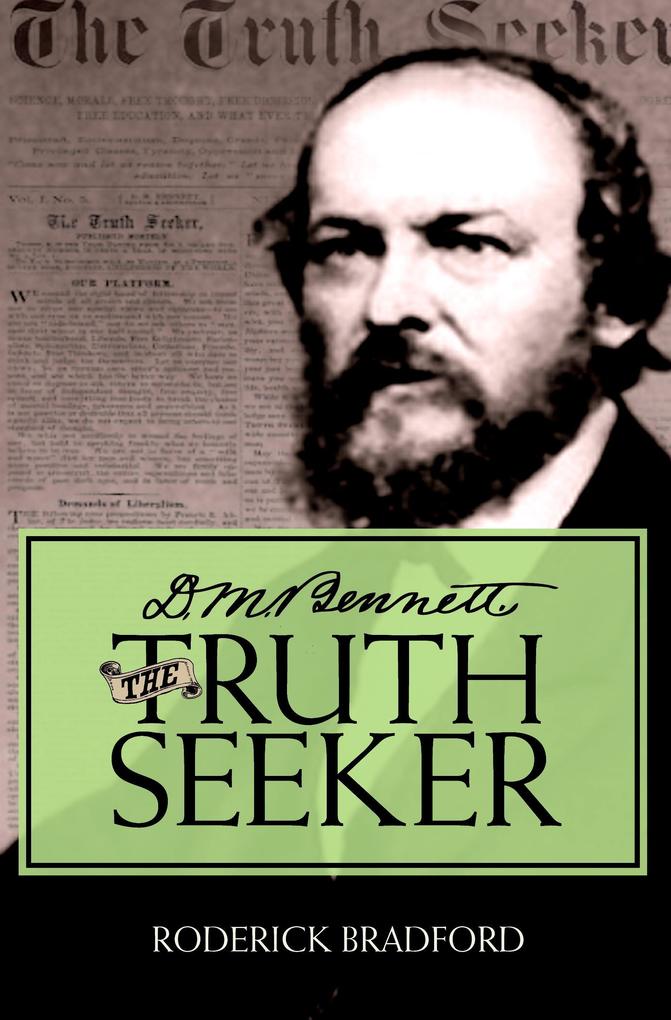DeRobigne Mortimer Bennett (1818-1882) was nineteenth-century America's most controversial publisher and free-speech martyr. Bennett founded the "blasphemous" New York periodical The Truth Seeker in 1873, and his publications were censored and prohibited from newsstands long before the expression "banned in Boston" was heard. In less than a decade, the former Shaker and self-described Thomas Paine infidel became the most successful publisher of freethought literature in America - perhaps the world. Mark Twain, Clarence Darrow, and Robert G. Ingersoll, "The Great Agnostic," were only a few of the illustrious freethinkers who subscribed to the periodical devoted to "science, morals, freethought and human happiness." But Bennett's opposition to dogmatic religion and puritanical obscenity laws so infuriated Anthony Comstock, the U.S. Post Office's "special agent" and self-proclaimed "weeder in God's garden," that the freethinking publisher was eventually prosecuted, subjected to a controversial and widely publicized trial, and finally imprisoned.Based on original sources and extensively researched, this in-depth yet accessible biography of D.M. Bennett offers a fascinating glimpse into the turbulent period of late nineteenth-century America-the Gilded Age, a time when our nation was controlled by pious politicians, powerful manufacturers, and censorious clergymen. Roderick Bradford follows Bennett's evolution from a devout Shaker to an unremitting skeptic and America's most iconoclastic publisher. He details the circumstances that led to Bennett's historically significant New York obscenity trial and the monumental, though ultimately unsuccessful, petition campaign for a pardon. This was the largest protest of its kind in the nineteenthcentury and one that went all the way to the White House. Bradford also investigates Bennett's prominent role in the National Liberal League, his interactions with leading suffragists and the National Defense Association (a forerunner of the ACLU), and his flirtation with spiritualism and theosophy.Roderick Bradford has written a valuable historical contribution, a long-overdue tribute to a free-speech champion, and a colorful depiction of memorable characters and events during a period of great change in American history.











